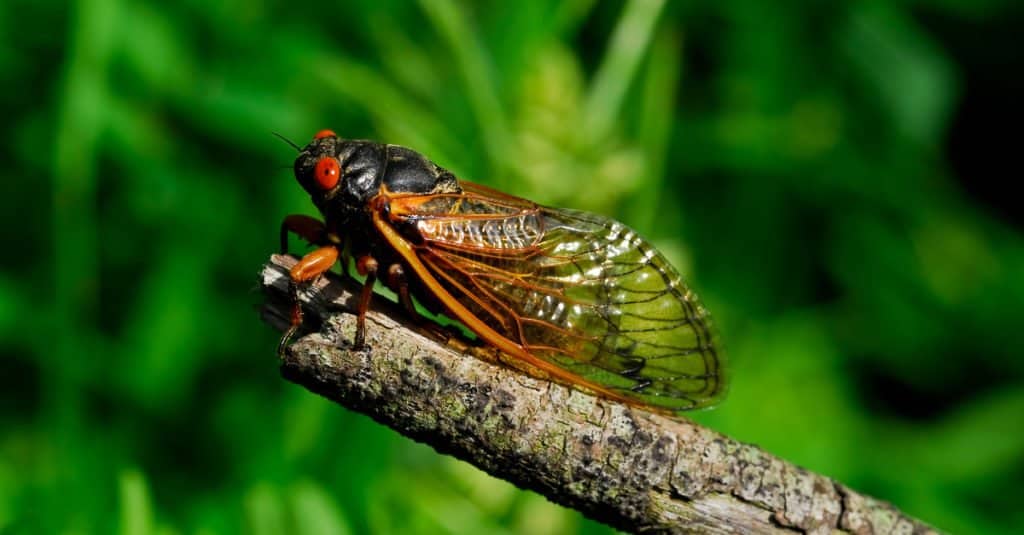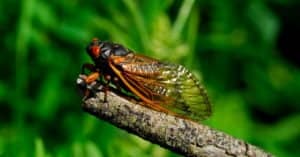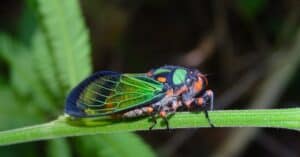The forest is quiet, as though you could hear a pin drop. For 17 years, this is how it has been. But the animals in the forest know that change is coming soon. A feast that they will be able to relish for a few days.
Check out the Amazing Video Below!
Deep underground, something is brewing. For 17 years, billions of cicadas have been growing and living underground. And then nature takes its course, and they are ready to emerge and do what they are made for.
This video posted takes us into a deep forest. The only sounds at night are small sounds from animals as they make their way across the nighttime. The camera pans, and we come to the ground, where we see the dirt breaking up as these incredibly small insects, cicadas, surface.
Something in these insects’ nature is calling to them, telling them it is time for them to blossom into what they are meant to be and do in the next few days. As they all make their way across the ground, they climb the nearest tree.
After climbing the tree, these cicadas will shed their skin (skeleton) and will take on the form they were meant to as adults. The video explains that they are merely a soft white color when they first form. But, they have all night to transform themselves into exactly what they will look like as adults.
After completing this transformation the next morning, billions of these cicadas swarmed the forest. As they are clumsy as adults, various animals, such as squirrels, birds, and turtles, eat thousands of these cicadas. The others complete their purpose by mating and laying eggs.
These cicadas have all died in just a few short days, and the forest is now so quiet, as if nothing ever happened. The forest will not hear from these cicadas again for another 17 years.
Cicada (Cicadoidea) Facts

The African cicada can reach 120 decibels. Which has the effect of a rock concert or a loud car race.
©Georgi Baird/Shutterstock.com
Cicadas are easily among the top 10 loudest animals on Earth. They are on the list, among others, with the North American bullfrog, howler monkey, sperm whale, and greater bullfrog bat, to name a few.
Cicadas are herbivores that eat things such as roots, sap, and branches. They only weigh about two grams and reach 2.8 inches in height. They belong to the superfamily Cicadoidea and there are more than 3,000 described species, although there are still more than have remained undescribed. Of these 3,000, only about 7 species belong to the genus Magicicada, which are periodical cicadas that are endemic to North America.
Is it Normal for Cicadas to Stay Underground for Long Periods?

These insects have an internal molecular clock that enables them to sense time passing through changes in the sap they eat from trees.
©Georgi Baird/Shutterstock.com
Cicadas can be found in two types – annual cicadas that emerge every year and periodical cicadas, a group of homopterans that have the longest known life cycle and remain in the ground for anywhere from 13 to 17 years. Each group of periodical cicadas is called a brood. The specific group that stays dormant for 17 years is known as Brood X (10) and scientists believe they stay underground for so long as a way to avoid predators and prevent them from reproducing their lifecycle.
These insects have an internal molecular clock that enables them to sense time passing through changes in the sap they eat from trees. They are active while underground, not hibernating, and are busy feeding and digging. They emerge when the temperature is ideal.
The photo featured at the top of this post is © Tacio Philip Sansonovski/Shutterstock.com
Thank you for reading! Have some feedback for us? Contact the AZ Animals editorial team.






